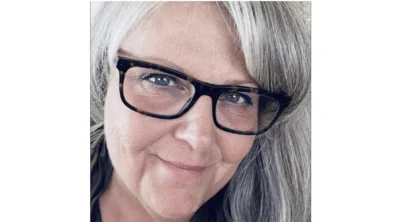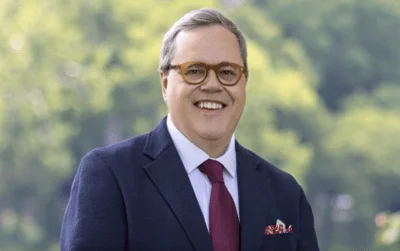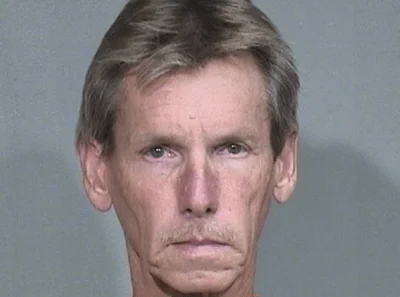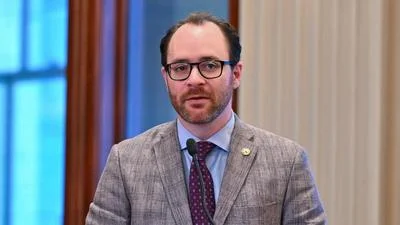Village of Deerfield Greenhouse Gas Ad Hoc Working Group met Jan. 12.
Here are the minutes provided by the group:
A meeting of the Greenhouse Gas Reduction Ad Hoc Working Group was held at 3:00 pm via Zoom. Chairperson Mary Oppenheim called the meeting to order at 3:00 pm.
Present:
Trustee Mary Oppenheim, Chairperson
Camilla Dadey, Go Green Deerfield
Elaine Jacoby, Village Trustee
Bill Mertes, Sustainability Commission (arrived 3:11 pm)
Victoria Street, Executive Director, Deerfield Township
Art Wilde, Go Green Deerfield
Absent:
Don Anderson, Sustainability Commission Chairperson
Also Present:
Dan Nakahara, Village Planner
Robert Phillips, Director or Public Works and Engineering
Clint Case, Code Enforcement Officer
Document Approval
Commissioner Dadey moved to approve the minutes from the December 15, 2021 Greenhouse Gas Working Group meeting. Commissioner Wilde seconded the motion. The motion passed by the following vote:
AYES: Dadey, Jacoby, Mertes, Street, Wilde, Oppenheim (6)
NAYS: None (0)
Public Comment
There were no Public Comments received via Zoom or email or in person. Business
1. Discussion of Possible Policies, Programs and Resources
A Focus Area: Energy
Ch. Oppenheim noted energy has been discussed as a focal point as it is the largest contributor to greenhouse gases and CO2. To reach the overall goal of reducing emissions by 45 percent by 2030 and becoming 100 percent carbon neutral by 2050, the group is looking into converting electricity from carbon sources to 100 percent renewable sources by 2030.
Ch, Oppenheim reported 35 percent of the CO2 generated is from electricity use. The residential use is 28 percent, small commercial is 44 percent and 27 percent is large commercial sources.
(1) Renewable Energy Credits
The group discussed using renewable energy credits to purchase renewable energy to eliminate the totals of greenhouse gases sent out through carbon-based energy sources. According to the numbers from 2017, the Village produces 144,821 MWh. In order to achieve 100 percent renewable energy, the Village needs to come up with an additional $374,462 for a renewable energy credit. If the Village could generate the additional money through the electric utility tax, it could be a very viable way to raise the funds as well as incentivize people to use less energy.
If the Village raises additional funds through the utility tax, an average home would pay an additional $19 per year. A small business would increase about $330 per year. If the Village raised the funds through a property tax increase, it would be $42 per year for residents. Trustee Jacoby questioned the differential for commercial properties if the property taxes were increased. Ch. Oppenheim explained it is difficult to make that comparison. It is clearer cut using the electric utility tax, because it would be tied directly to energy use. Commissioner Street explained if it is the taxes, it would go to the property owner. The utility tax is $25 more per month for a small business, which is a lot since they do not have control over things they are paying for.
The commissioners discussed whether the taxes could be handled differently for residential and businesses. Mr. Nakahara explained the rate schedule is based on a weighted average where every sector would increase in proportion to their energy use. Commissioner Street explained businesses do not have as much control over their efficiency as residential users. Ms. Dadey noted larger businesses can afford paying more than a small business. Ch. Oppenheim noted the large users pay half of the amount a small user pays per kilowatt hour. The largest generators of CO2 are the large users.
Trustee Jacoby questioned whether the Village could phase in the program over two or three years. Ch. Oppenheim noted as the power grid gets greener with more sustainable sources of energy, there will be fewer recs to purchase. The Village would not have the same opportunity year to year. Mr. Nakahara added with future energy becoming cleaner, the Village would purchase less over time; so over time, the Village would need fewer recs.
Mr. Wilde believes it is interesting that the rate lowers as usage increases. He questioned whether that is something the Village should encourage. Ch. Oppenheim explained the discount is there because small businesses do not have control over much of their energy usage. Trustee Jacoby noted the committee also has to consider what the Board and residents would consider.
Mr. Phillips explained the largest energy consumer is the Public Works pump stations with just under 200,000 kilowatt hours per month. Small businesses paying based on kilowatt hour usage would pay less than $330 because they are not using as much electricity. He suggested getting an invoice from a small business to find out their usage as a frame of reference.
Commissioner Street suggested forming a sub-committee to talk to businesses to determine the kilowatt hours for an average hotel, average restaurant, etc. Ch. Oppenheim noted the committee does not have clarity on commercial usage. One of the things discussed is incentivizing people to use less energy. The committee needs to confirm the average cost to a resident would be an additional $18.46 per year to get the Village to 100 percent sustainable. Commissioner Dadey noted newer houses may be more energy efficient than older homes. Ch. Oppenheim noted it would not be a flat fee, but would encourage and be an incentive for less energy efficient people to become more efficient.
The commissioners discussed the variation between older homes and more efficient homes. Mr. Phillips will try to get tighter numbers on residential usage based on property age and size. Trustee Jacoby does not believe it is worth the effort, as it would be and increase of approximately $1.50 per month for residents. Commissioner Mertes would not be in favor of increasing taxes and believes it will be a tough sell for both the Board and residents. He questioned whether the true purview of the Proclamation is to impose a tax on every single owner or to consider the greenhouse gas footprint of the Village. Mr. Wilde believes the committee is trying to find solutions that will address the Village’s huge goal. This particular solution has a broad impact in reducing the carbon footprint by one third. The $18 a year for an average home would reduce 35 percent of the carbon footprint. He believes it is a small price relative to what it is helping. Commissioner Mertes believes this would reduce a slice of a very small part of the carbon producing universe. He is not excited about recommending a tax increase to address the global problem. Commissioner Street believes if every community does this, it would no longer be a global problem. She does not believe $1.50 per month would be objectionable to residents as it is something they can really see. Ch. Oppenheim questioned whether the group felt that reducing the carbon footprint is worth the anticipated cost, given the importance of the goal. She noted residents are willing to pay taxes necessary to fund schools high quality schools because of the importance they place on education. use of the high quality they place on education. Trustee Jacoby initially thought that tiny Deerfield could not make a difference; however, the utility tax route would not have a major impact on residents. The focus cannot be on just Deerfield, but look at the bigger picture. Ch. Oppenheim noted purchasing recs does not mean the Village will stop making local efforts or look at the energy consumption of the WRF.
(2) GRC2 and other Energy Initiatives
Ch. Oppenheim noted there are a number of suggestions of what the Village can do to reduce and clean up energy use. There are a lot of things the Village already does, such as conducing audits of commercial, residential and institutional buildings. There are some things that residents can be educated on. Mr. Nakahara explained the document is a framework with recommendations and strategies that are flexible. One suggestion, implementing strategies that have long-term payback, is something staff is interested in, but have not yet implemented. It could include solar panels, higher efficiency HVAC units, etc.
Mr. Wilde believes this document is difficult to digest. He looked at the main strategies and believes the spirit is to conduct an energy audit and retrofit municipal buildings and street lights for maximum efficiency. In addition, the Village may establish a policy requiring Energy Star appliances for all new Village equipment, and determine which sector can be affected by implementing changes. Mr. Wilde will send this to Mr. Lichterman for the next meeting distribution as a collaborative document. Ch. Oppenheim hopes to wrap up energy at the next meeting and start on waste next.
Mr. Nakahara noted GRC2 supported energy audits of residential, commercial and institutional facilities have already been achieved, as it is a major focus of the Sustainability Commission. Through their audits, partnering for special events, publicizing events and audits of holiday lights, they have been very impactful.
Commissioner Street noted this type of push to be as green as possible makes Deerfield a more desirable community for businesses. The Village can say this is one of the core values, which will be a huge selling point of development for the future. Ch. Oppenheim noted there will be
legislation in the future to require communities to do certain things. It would behoove the Village to have a plan in place when the legislation comes along. Mr. Case noted the Village has already moved forward on energy conservation codes and is ahead of the State mandates.
2. Other items for Discussion
3. Updates:
A. 2021 IECC
The Village adopted the 2021 IECC. The Code takes effects March 1, 2021.
B. Landscape Regulation Working Group
Ch. Oppenheim noted the Village is participating in a landscape regulation working group consortium. They are discussing the issue of gas-powered leaf blowers. There are big implications for the landscape industry. Mr. Nakahara noted their goal is to create a research document that will have options and solutions for each community.
C. ICLEI Membership
Mr. Lichterman is a member of the group. There is a lot of data and resources available. It can help the Village write a plan.
Public Comment
There were no public comments via email, in person or via Zoom.
Adjournment
There being no further business or discussion, Trustee Jacoby moved to adjourn the meeting. Commissioner Dadey seconded the motion. The motion passed by the following vote:
AYES: Dadey, Jacoby, Mertes, Street, Wilde, Oppenheim (6)
NAYS: None (0)
The next meeting of the Greenhouse Gas Reduction Ad Hoc Working Group will take place on Wednesday, January 26, 2022 at 3:00 pm via Zoom.
The meeting was adjourned at 4:20 pm.
http://www.deerfield.il.us/AgendaCenter/ViewFile/Minutes/_01122022-824





 Alerts Sign-up
Alerts Sign-up